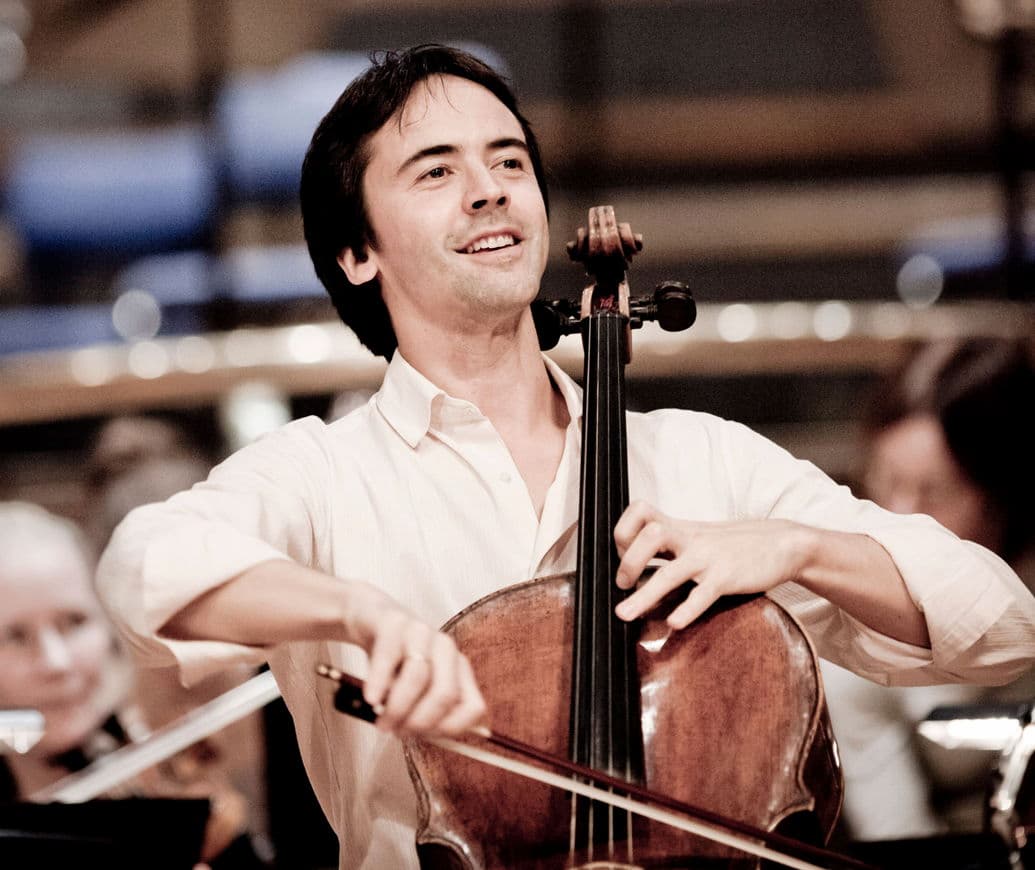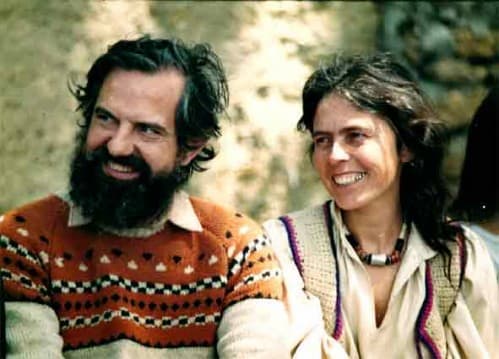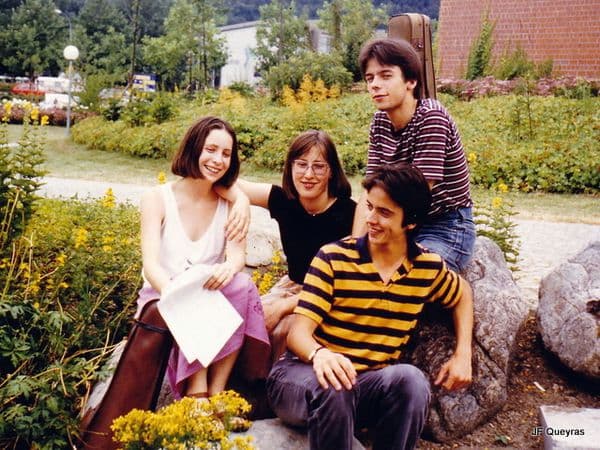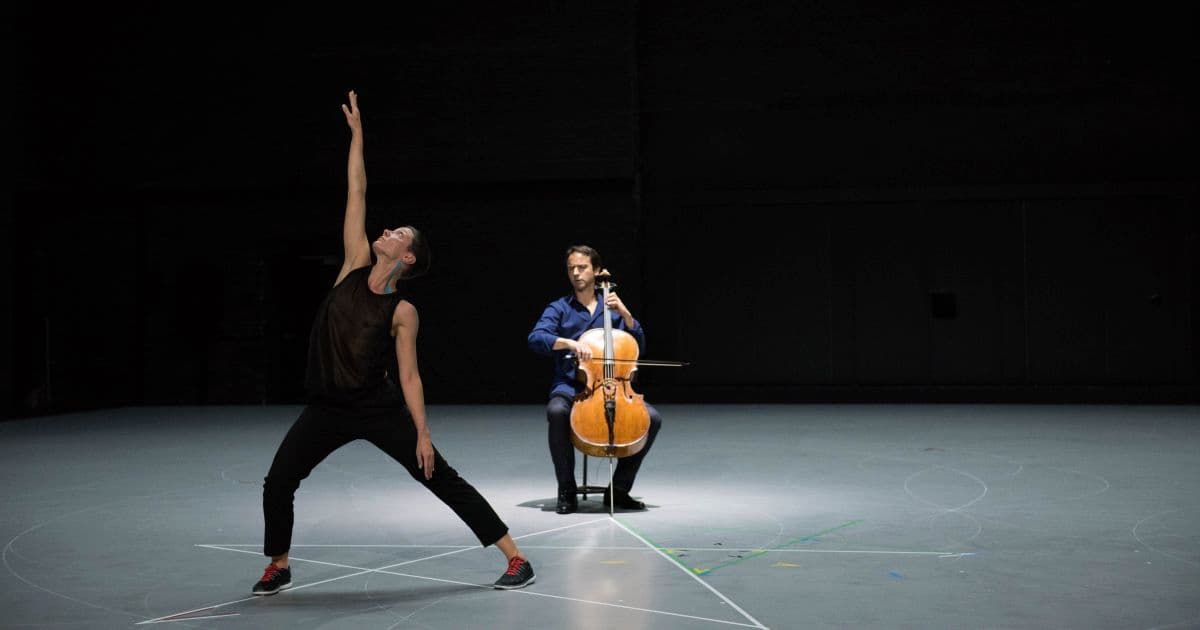The artistry of Jean-Guihen Queyras, born on 11 March 1967 in Montreal, Quebec, Canada, is characterized by insatiable curiosity, diversity and a firm focus on the music itself. A musician completely dedicated to his art, his humble approach and unpretentious treatment of the score emerged during his long artistic partnership with Pierre Boulez.

Jean-Guihen Queyras
As a long-time soloist with the “Ensemble Intercontemporain,” Jean-Guihen Queyras was part of an evolution of contemporary classical music. As Queyras remembers, “The EIC was only created in the 70s, but the whole movement that went into it—Boulez, Stockhausen, and the lot—presented a sort of revolution in France, a struggle against conservatisms, a reaction against reactionaries. All these ideological struggles had subsided by the time I joined in the early 90s. I know that some people regretted that, but I always thought that was a chance for new openings and new connections between different musical worlds. And I’m very happy that I live in a time where I didn’t have to choose between Boulez and Britten.”
Jean-Guihen Queyras Performs Schumann’s Cello Concerto in A minor, Op. 129
“classical music, contemporary or not, will live anyway”

Marie-France and Jean-François Queyras
Jean-Guihen Queyras’ inclusive approach to music applies to all time periods and genres. He has collaborated with the Freiburg Baroque Orchestra and the Akademie für Alte Musik Berlin, and presented world premieres of works by Ivan Fedele, Gilbert Amy, Johannes-Maria Staud, Thomas Larcher and Tristan Murail. For Jean-Guihen Queyras contemporary classical music is an absolute inevitability. “Great composers compose because they need to compose,” he explains. “They don’t do it to help the classical musical world. And I must say as a performer it’s the same thing: I don’t play contemporary music because it is in fashion or because it looks good in a program, but it’s because I really need that. It’s part of the experience I absolutely need. Unless there is an absolute resistance, I will always propose some new music and it makes me very happy that more than once, and more than sometimes, people complement my choices.” And he makes it very clear that in his opinion, “classical music, contemporary or not, will live anyway…because it is a passion we want, a passion that only lives and truly lives when we make it accessible to the listener.”
Gilbert Amy: Cello Concerto (Jean-Guihen Queyras, cello; Orchestre de Paris; Gilbert Amy, cond.)
Establishing the “Rencontres Musicales”

Quartet Queyras, 1986
Jean-Guihen Queyras feels privileged to have collaborated with major ensembles, orchestra and conductors, but above all, he wants to share the musical experience with everybody. “Music,” as he explains, “only makes sense when it is shared.” Encouraged by his parents Marie-France and Jean-François Queyras, and together with his brother Pierre-Olivier, Jean-Guihen established “Rencontres Musicales” when he was still a student. For two weeks, up-and coming young professionals gather to rehearse and perform in a series of public rehearsals and concerts. “Rencontres is highly appreciated for its artistic quality, for an atmosphere of simplicity, friendship, dialogue, and inclusiveness.” Queyras knew he was on the right track when “the butcher and the postman and all these people who might not have thought classical concerts are for them started to attend.” As he explains, “the clichés that classical music is not for certain people has endured over time. The idea of the classical world being something very closed and reserved to an elite that is cultivated and dressed in a proper way. Maybe different from one country to another, but I experience it over and over again when I speak about it with taxi drivers in any given town. And sometimes I invite them: come to the concert tomorrow—and they say ‘Oh, but it’s not for me’… But why? All of which is to say that I think every initiative that can burst that bubble is still very much needed and welcome.”
Faust/Queyras/Melnikov perform Beethoven: Piano Trio, Op. 97 “Archduke Trio”
His Quest for a True Dialogue With Other Art Forms

“Mitten wir im Leben sind”, Jean-Guihen Queyras’ collaboration with Anne Teresa De Keersmaeker and dance group Ensembles Rosas
Jean-Guihen Queyras is constantly looking for collaborative projects that thrust music into a true dialogue with other art forms. “I wanted to work with dance for a long time,” says Queyras, “but there were very few choreographers who I felt could really become one with the music.” He finally found the collaboration he was looking for in “Mitten wir im Leben sind,” choreographed by Anne Teresa De Keersmaeker and her dance group Ensembles Rosas. The production probes deep in Bach’s Cello Suites, and the dancers react directly with Queyras and become an incarnation of the music. According to Queyras, “Anne Teresa starts by going to the roots. Why does this music exist? And then she finds her own little branch, out of which a new work arises. The idea is to find the seed in the interpretation and then create something new. I find that more interesting than starting with a definite idea and then trying to tease that out of the work.” And while Pierre Boulez preached, substance, transparency, clarity in his striving for objectivity, “With the Bach Suites, I still want to allow for subjectivity to a certain extent. I’ve noticed that I play differently when the dancers are there. There’s this interaction; I don’t want to be hermetically sealed off from outside influence.”
For more of the best in classical music, sign up to our E-Newsletter
Queyras/Keersmaeker “Mitten wir im Leben sind,” (Excerpt)
